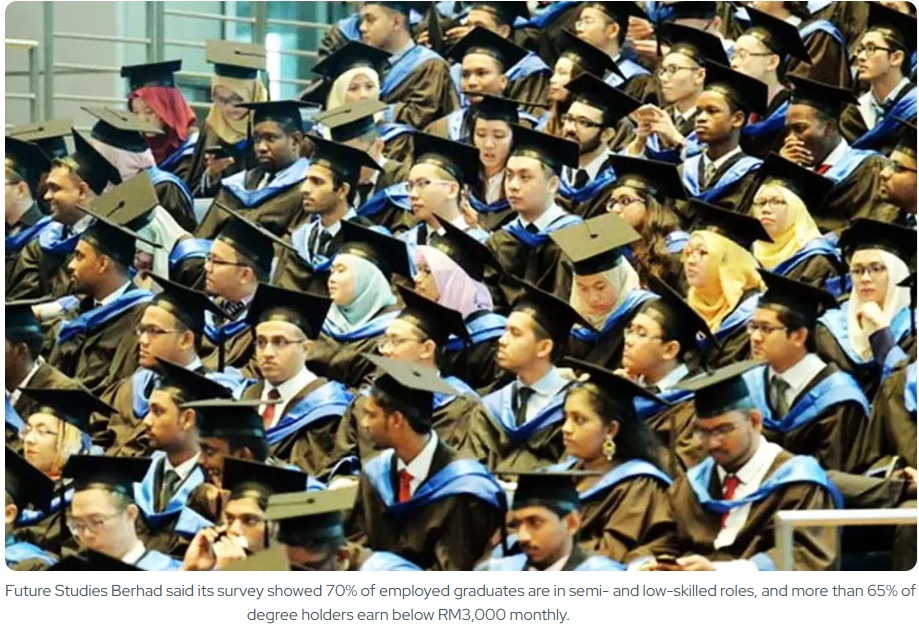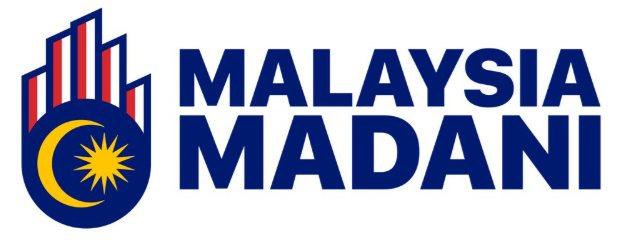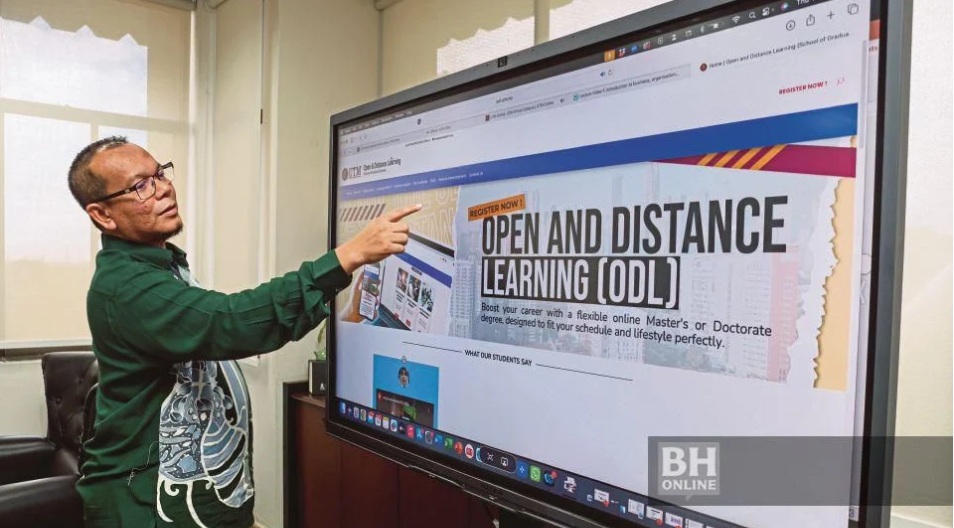|
|
||||||||||||||||||||||||||
|
Universiti Putra Malaysia (UPM) telah menawarkan program secara pendidikan jarak jauh (PJJ) sejak tahun 1995 di bawah pengendalian Institut Pendidikan Pengajian Jarak Jauh (IDEAL) yang kemudiannya pada tahun 2004 dinamakan sebagai Pusat Pendidikan Luar (PPL). Penawaran program bermula dengan program Bacelor Sains Komputer pada Sesi 1995/1996; diikuti dengan program Bacelor Pendidikan (Bimbingan dan Kaunseling), Bacelor Pendidikan (Pengajaran Bahasa Melayu sebagai Bahasa Pertama), Bacelor Pendidikan (TESL), Master Sains (Pembangunan Sumber Manusia) dan Bacelor Komunikasi pada tahun 1998. Sejak tahun 2009, UPM melalui UPM Education and Training (UPMET) telah menawarkan dua belas (12) program PJJ di peringkat Diploma, Bacelor dan Master secara kerja kursus. Pengendalian program PJJ ini melibatkan 14 Pusat Pembelajaran (PP) di seluruh negara yang dipantau oleh pihak UPMET.
Bagi memastikan aspek jaminan kualiti program ODL, Agensi Kelayakan Malaysia (MQA) telah membangunkan Kod Amalan Pembelajaran Terbuka dan Jarak Jauh (Code of Practice for Open and Distance Learning (COP:ODL)) pada tahun 2013. Sejajar dengan perkembangan ODL semasa dan input daripada pihak berkepentingan, MQA telah membuat penambahbaikan ke atas dokumen COP:ODL dan menghasilkan COPPA:ODL (Code of Practice for Programme Accreditation: Open and Distance Learning) atau Kod Amalan Akreditasi Program: Pembelajaran Terbuka dan Jarak Jauh pada tahun 2019.
1.1 Tujuan
Jadual 1 Ringkasan Kandungan Buku Panduan Jaminan Kualiti Program ODL UPM
1.2 Definisi ODL
ODL merujuk kepada penyediaan peluang pendidikan yang fleksibel dari segi akses dan pelbagai mod kaedah pemerolehan pengetahuan iaitu:
1.3 Perbezaan antara Kaedah Penyampaian Konvensional dengan ODL Berdasarkan Garis Panduan Pembangunan Program Akademik Universiti Awam Edisi Kedua oleh JPT (2018), kaedah penyampaian program merangkumi kaedah konvensional dan ODL. Kaedah penyampaian konvensional ditakrifkan sebagai pengajaran dan pembelajaran (PdP) bersemuka sepenuhnya atau dengan gabungan pembelajaran dalam talian secara teradun (blended learning). Manakala untuk ODL, PdP program dikendalikan dengan komponen kursus yang dilaksanakan secara dalam talian melebihi 60% daripada keseluruhan jumlah kursus dalam program.
1.4 Kriteria Wajib dan Umum Program ODL
COPPA:ODL (2019) telah menggariskan kriteria wajib dan umum untuk sesuatu program boleh dikategorikan sebagai program ODL iaitu:
Sesuatu program dikategorikan sebagai program ODL apabila memenuhi kriteria berikut:
Nota: Sila rujuk Bahagian C: Panduan Pembangunan JPP dan SIM ODL UPM untuk penerangan lanjut berkenaan JPP.
Standard COPPA:ODL (2019) dan Surat Makluman MQA Bil. 12/2020 menekankan kepada tiga (3) kriteria umum yang perlu ada dalam pembelajaran program ODL iaitu:
|































